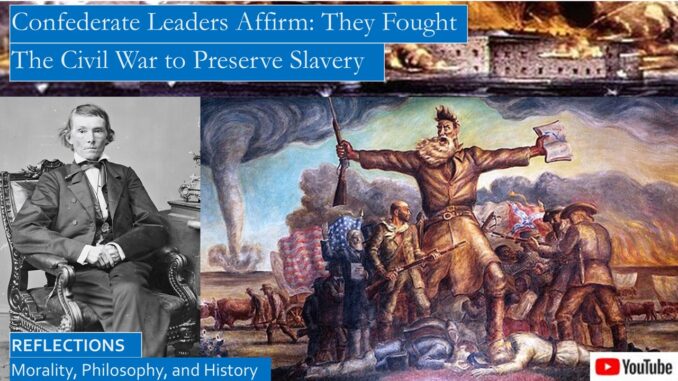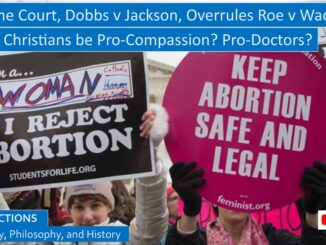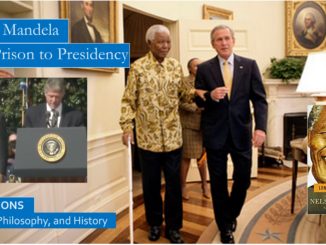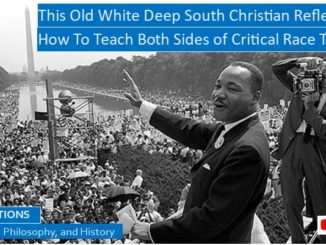
In some videos, particularly our short videos, we sometimes get comments that “everyone knows” that the Civil War was not fought over slavery.
Unfortunately, someone did not inform the leaders of the Confederacy that they did not secede because of slavery, because the fear that slavery would be abolished was exactly the reason the Confederate leaders gave for seceding from the Union.
After the seven core states of the Confederacy seceded, and three weeks after the inauguration of Abraham Lincoln as President, Alexander Stephens, Vice President of the Confederacy, delivered the Cornerstone Speech in Savannah, Georgia. He proudly announced that white supremacy and black slavery was the cornerstone of Southern society, claiming that white supremacy and slavery was based on divine law.
The Confederate VP Stephens proclaimed:
“Our new government’s foundations are laid, its cornerstone rests upon the great truth, that the negro is not equal to the white man; that slavery, subordination to the superior race, is his natural and normal condition. This, our new government, is the first, in the history of the world, based upon this great physical, philosophical, and moral truth.”
Stephens continues, “Our confederacy is founded upon principles in strict conformity with these laws” establishing slavery. “This stone which was rejected by the first builders ‘is become the chief of the corner,’ the real ‘corner-stone,’ in our new edifice.” This is religious imagery, as Christ was proclaimed as the corner-stone of Christianity.
Furthermore, the Confederate VP Stephens proclaimed that the new Confederate “Constitution has put at rest forever all the agitating questions relating to our peculiar institution, African slavery as it exists among us, and the proper status of the negro in our form of civilization.”[1]
Powerpoint script, with Amazon book links:
https://www.slideshare.net/BruceStrom1/confederacy-fought-the-civil-war-to-preserve-slavery-confederate-leaders-proclaimed
YouTube video for this blog: https://youtu.be/vBt81M6EWk0
SECESSION CONVENTIONS
What did the states give as their reasons to secede in their secession conventions?
South Carolina, the first state to secede, and the first state militia to fire on Union troops at Fort Sumter, starting the Civil War, stated in its declaration of secession the “increasing hostility on the part of the non-slaveholding States to the Institution of Slavery”. “A geographical line has been drawn across the Union, and all the States north of that line have united in the election of a man to the high office of President of the United States, whose opinions and purposes are hostile to slavery.”[2]
Mississippi proclaimed that its reason for seceding was to preserve “the institution of slavery, the greatest material interest of the world.”[3]
Florida proclaimed that the reasons for its seceding were all related to slavery: “the North’s disregard for the 1850 Fugitive Slave Act; John Brown’s 1859 failed slave uprising; and William Lloyd Garrison’s The Liberator and Frederick Douglass’ The North Star tried to ‘excite insurrection and servile war,’” and lastly listed Lincoln’s election as another reason.[4]
The Fugitive Slave Act was part of the Compromise of 1850 to hold the Union together, it stated that Northern officials were obligated to return runaway slaves to their masters and was deeply unpopular in the North. In return, several states were admitted to the Union as free states.
John Brown was a fanatical anti-slavery terrorist who captured the federal arsenal at Harper’s Ferry in Virginia, hoping to spark a slave uprising, except that the surrounding slaves had no knowledge of his plans. Robert E Lee was the US general who put down the insurrection, and John Brown was able to deliver a prophetic oration at his trial, capturing the imagination of many in the North.
American Slavery and the Abolitionists: Yale Lecture Notes
http://www.seekingvirtueandwisdom.com/american-slavery-and-the-abolitionists-yale-lecture-notes/
https://youtu.be/kmLg8CDjOOY
Frederick Douglass, a former runaway slave and spell-binding orator whose English friends were able to purchase his manumission, wrote a best-selling autobiography on the brutalities he experienced and witnessed in his life as a slave.
Frederick Douglass Tells Us About His Life as a Slave in his Autobiography
http://www.seekingvirtueandwisdom.com/frederick-douglass-tells-us-about-his-life-as-a-slave-in-his-autobiography/
https://youtu.be/7VkzhyNnuQk
Likewise, Alabama seceded from the Union mainly to perpetuate slavery.[5]
Georgia likewise seceded from the Union to preserve slavery, its governor asked, “What will be the result to the institution of slavery, which will follow submission to the inauguration and administration of Mr. Lincoln as the President? It will be the total abolition of slavery.”[6]
Likewise, Louisiana seceded from the Union mainly to perpetuate slavery.[7] Texas also explicitly stated that slavery was the cause for secession: “We hold as undeniable truths that the governments of the various States, and of the confederacy itself, were established exclusively by the white race, for themselves and their posterity; that the African race had no agency in their establishment; that they were rightfully held and regarded as an inferior and dependent race, and in that condition only could their existence in this country be rendered beneficial or tolerable.”[8]
Slavery was the main reason for secession for the other states seceding from the Union.[9]
DRED SCOTT SUPREME COURT DECISION
Not only had the Confederate states dominated Congress and the Presidency in the decades prior to the Civil War, they also dominated the Supreme Court. A major cause of the Civil War was the Supreme Court decision in Dred Scott vs Sanford in 1857. Dred Scott was a slave who sued his master for his freedom as his master moved him and his family between slave states and free states that banned slavery under the Missouri Compromise law.
The Southern Chief Justice Roger Taney held that no negro had ever enjoyed the rights of a citizen under the Constitution. Negroes were denied the dignity of personhood, negroes were always property and would also remain property, negroes were declared by the Supreme Court decision to be “so far inferior that they had no rights which a white man was bound to respect.” This decision applied to freed blacks as well as slaves. This decision, which denied that the Constitution gave Congress the right to bar slavery in the territories, enraged public opinion in the North, bolstering the popularity of Lincoln and the Republican Party.[10]
American Slavery and the Abolitionists: Yale Lecture Notes
http://www.seekingvirtueandwisdom.com/american-slavery-and-the-abolitionists-yale-lecture-notes/
https://youtu.be/kmLg8CDjOOY
HARRIET BEECHER STOWE: UNCLE TOM’S CABIN
When Abraham Lincoln met Harriet Beecher Stowe, he remarked, So you are the little lady whose little book started the Civil War. This book, Uncle Tom’s Cabin, was the best-selling book by far in 1852, eventually selling over a million copies, galvanizing Northern opinion about the horrors of slavery. This romantic novel from the point of view of ordinary slaves, and it really promoted that the lives of even slaves should have dignity, they were not just mere property like cows or horses, that slaves could the heroes and heroines of a tragic novel allowing the reader to imagine the horrors of a life lived bound in chains, of souls bound in cruel inequities, of human beings bound in a life of unending peonage.[11]
STATE’S RIGHTS AND PRESERVING THE UNION
To say that upholding state’s rights was the true cause of the Civil War is ignoring the truth that the Confederate States saw it as the right of the individual states to uphold the institution of slavery, so state’s rights and slavery are really the same issue.
Wondrium had sponsored an online discussion featuring Professor Gary Gallagher and his Civil War lectures, and I was able to ask the good professor two questions.
My first question was whether many Northerners suspected that if the North sued for peace rather than calling up troops after South Carolina shelled Fort Sumter, that this would only delay the inevitable Civil War. The reason war would be inevitable is that the two nations would eventually come to blows over whether newly settled states in the western territories would be admitted to the Confederacy as slave states or be admitted as free labor states in the Union. Professor Gallagher answered that indeed, this was the fear of many informed citizens before the Civil War.
My second question was, Why Were Northern Soldiers Eager to Fight to Preserve the Union? Which seems to be a rather abstract cause to give the ultimate sacrifice of your life.
Professor Gallagher said that he wrote a book exploring that very question, which we reviewed in a prior video. Northerners were deeply committed to preserving the Union cause, this dominated the politics of American icons such as Daniel Webster and Henry Clay in the many decades preceding the Civil War. Northerners were resentful that the Confederate states seceded after Abraham Lincoln won the Presidency, this resentment was deepened by the fact that the Southern states had dominated the government since the founding of the Republic. But to truly understand the depth of these feelings, we need to reflect on the biographies of Daniel Webster and Henry Clay, which we plan to do.
Why Were Union Soldiers in the Civil War Willing to Fight to Preserve the Union?
https://seekingvirtueandwisdom.com/why-were-union-soldiers-in-the-civil-war-willing-to-fight-to-preserve-the-union/
https://youtu.be/0aak9Mtt0eI
There is no denying that the abolition movement in the North was never enthusiastically supported by the majority of whites in the North, most Northern whites were deeply prejudiced against blacks, and segregation of the races was nearly universally accepted. But many Northerners supported the Free-Soil Party, active from 1848 to 1854, which opposed slavery not on moral grounds, but on economic grounds, since slaves were seen as unfair competition to free white laborers and workers. When the Free-Soil Party dissolved, most of its former members joined the newly formed Republican Party.[12]
ABRAHAM LINCOLN’S EMANCIPATION PROCLAMATION
To win the war, Lincoln drafted the Emancipation Proclamation, shared it with his Cabinet, and then pocketed the document until the fortunes of war improved for the North. After the victory at the Battle of Antietam and Grant’s victory at Vicksburg, Lincoln released the Emancipation Proclamation as an executive order issued under his war powers as Commander-In-Chief in September 1862.
Lincoln proclaimed that if the Confederacy surrendered by January 1, 1863, she could keep her slaves, but if the rebellion persisted after that date all slaves in the rebelling states would be free. This guaranteed that England would not intervene in favor of the Confederacy, since the British were deeply committed to abolishing slavery.
The famous illustration in Harper’s Weekly illustration shows what the free blacks saw in Emancipation, no longer would they be whipped, no longer would they be abused, they could now vote, they and their children could attend school, learn how to read, and have a house, and have a family, and have family in their house, and have a real life of their own.
Stories of How Slaves Helped the Union Win the Civil War: Yale Lecture Notes
http://www.seekingvirtueandwisdom.com/stories-of-how-slaves-helped-the-union-win-the-civil-war-yale-lecture-notes/
https://youtu.be/89ulb20cy8Q
[1] https://en.wikipedia.org/wiki/Cornerstone_Speech
[2] https://en.wikipedia.org/wiki/South_Carolina_Declaration_of_Secession
[3] https://en.wikipedia.org/wiki/Mississippi_in_the_American_Civil_War
[4] https://en.wikipedia.org/wiki/Florida_in_the_American_Civil_War
[5] https://en.wikipedia.org/wiki/Alabama_in_the_American_Civil_War
[6] https://en.wikipedia.org/wiki/Georgia_in_the_American_Civil_War
[7] https://en.wikipedia.org/wiki/Louisiana_in_the_American_Civil_War
[8] https://en.wikipedia.org/wiki/Texas_in_the_American_Civil_War
[9] https://en.wikipedia.org/wiki/Ordinance_of_Secession
[10] Jonathon Holloway, Yale African American History: Emancipation to the Present, Lecture 2, YouTube video.
[11] Jonathon Holloway, Yale African American History: Emancipation to the Present, Lecture 1.




2 Trackbacks / Pingbacks